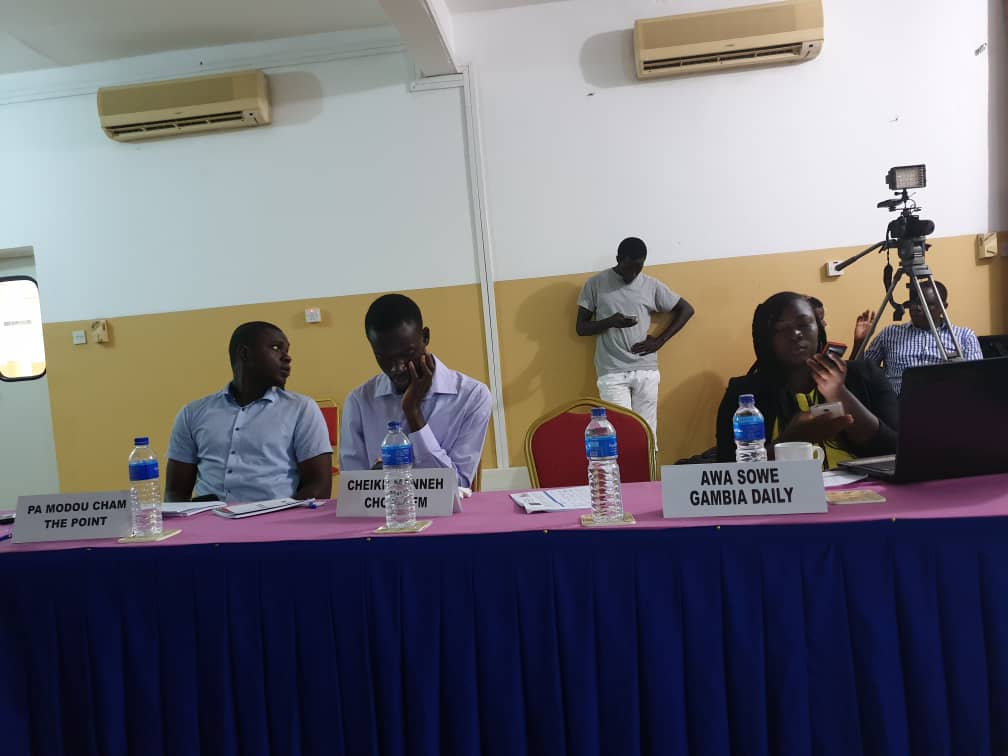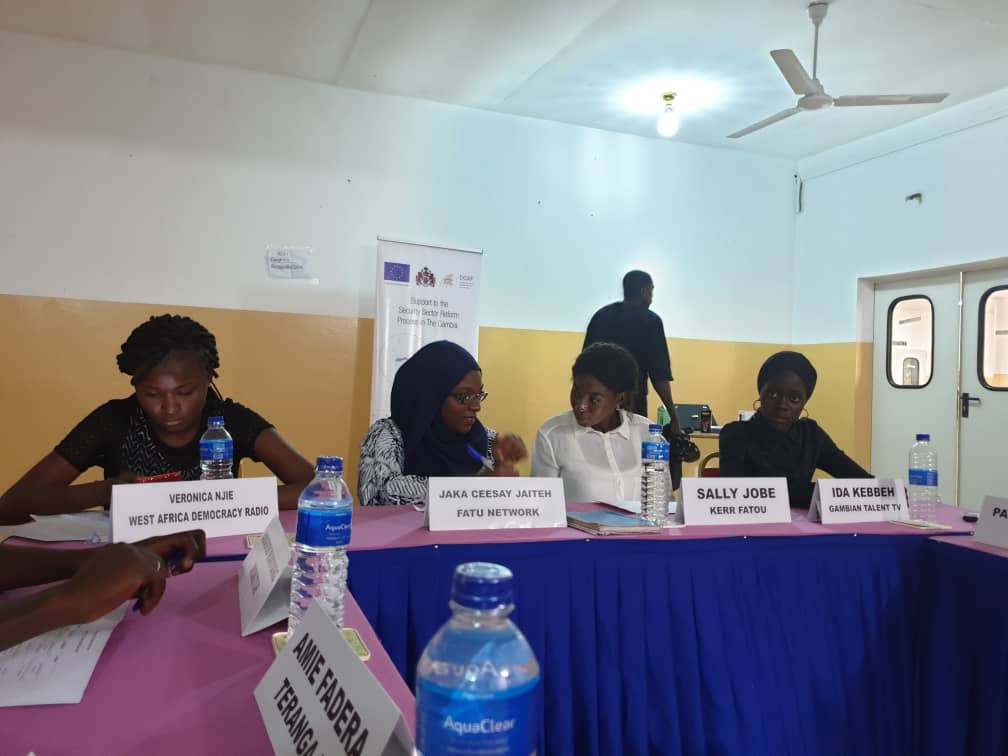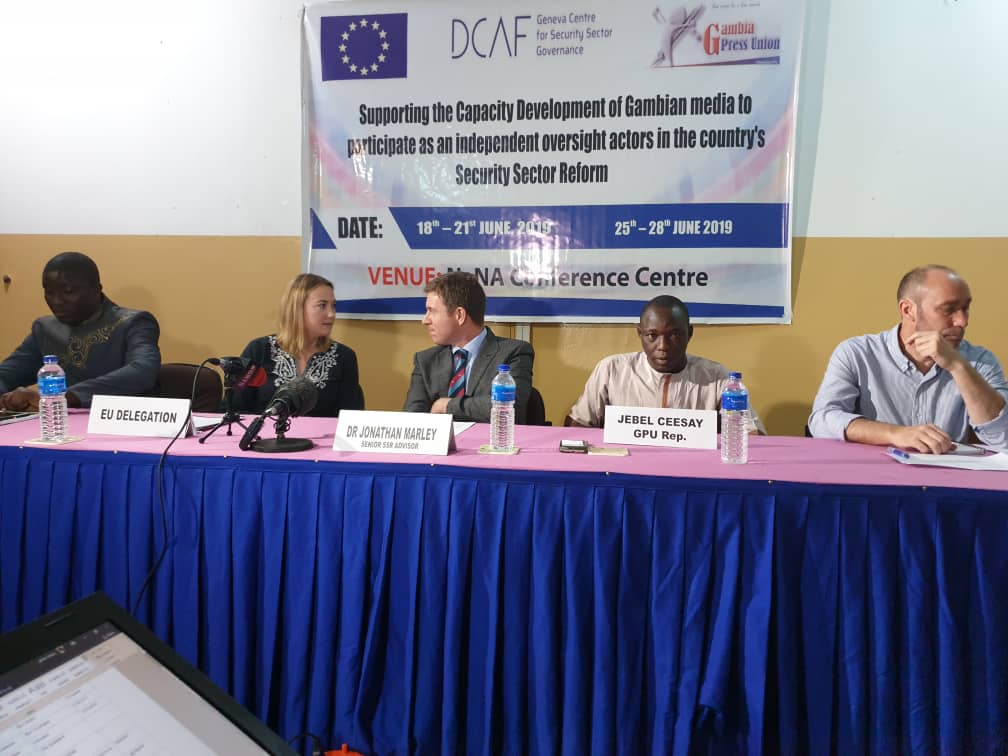By Kaddy Jawo
The Geneva Centre for Security Sector Governance, known as DCAF is training fifteen Gambian journalists on effective reporting on the Security Sector Reform. The four-day training will help journalists harness their skills on issues around the Security Sector Reforms (SSR) and enable them to act as watchdog for the entire process.
Free and independent media is seen by advocates of good governance as an integral and essential component of democracy. As a key player in public oversight, media is instrumental in holding government institutions accountable, transparent and responsive to the needs of the public.

The event brought together journalists from both the print and broadcast media who are passionate about reporting on security issues in the country.DCAF’s project in The Gambia seeks to contribute meaningful security sector reforms and greater accountability, leading to improve peace and security for The Gambian population.
In 2018, President Adama Barrow launched The Gambia’s first-ever National Security Policy (NSP) as part of Security Sector Reforms aimed at addressing security challenges in the country.
The government believes that SSR will provide a robust, coherent and strategic approach to respond collectively to national security threats with swift decision-making processes through clear lines of accountability and responsibility, prompt execution of actions and commitment to building the nation’s resilience to crime.

In 2017, The Gambia government tasked a committee to work on security sector reforms whose responsibility include the drafting of National Security Policy where all national security institutions will derive their doctrines.
Just early this month, French National Police began a twelve-day training on crowd control for forty officers of the Police Intervention Unit (PIU) including Platoon and Section Commanders.
The training involves taking modules on discerning critical operational situations, analyzing the environment and giving proper orders to troops. It focuses on the acquisition and the validation of the basics in order to perform the elementary maneuvers, movements and tactics, while the second week will focus more on operational reasoning and command.

